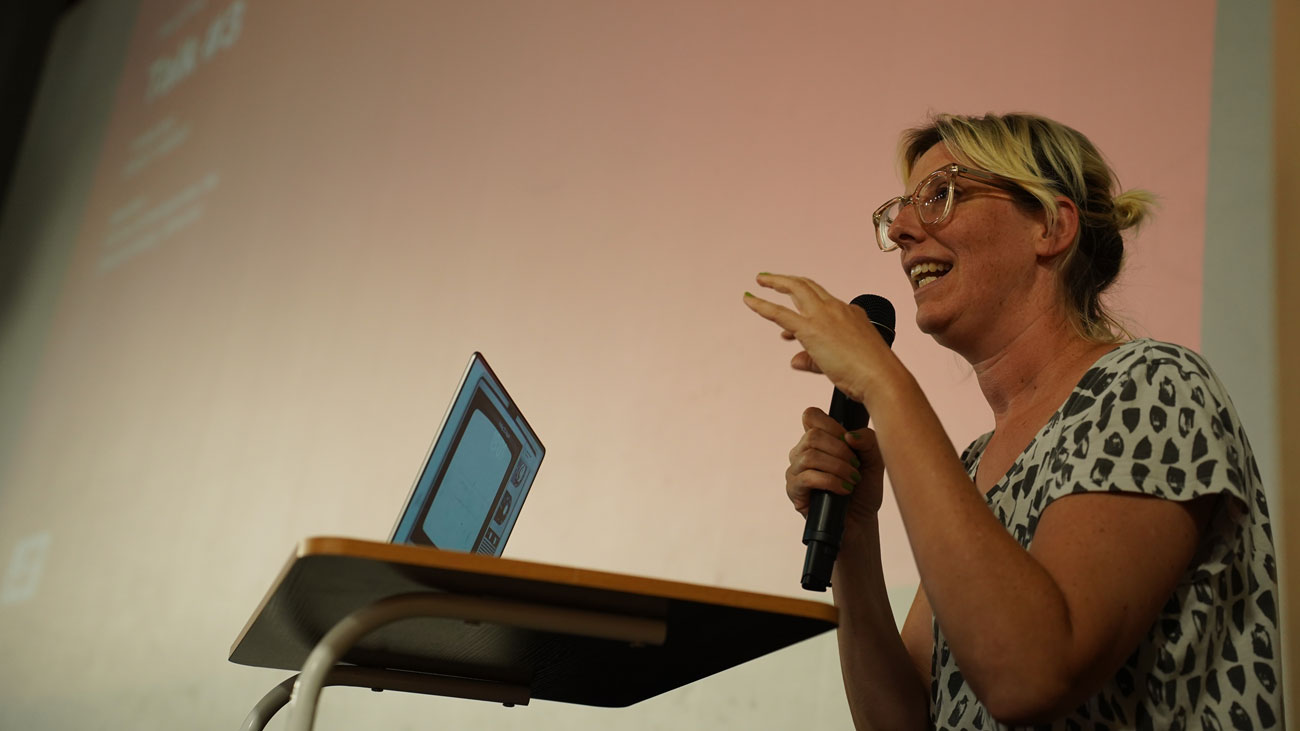
IKONIJA JEFTIĆ, MEET2TALK PRODUCER, IN CONVERSATION WITH CORINA SCHWINGRUBER ILIĆ
Unpretentious, refreshing, with a great sence of humor, while precisely targeting serious societal issues. Doesn’t bow to trends, norms and exectations, as they know exactly what they want. Both Corina Schwingruber Ilić and her films are like this.
Getting to know her is so exciting, not only because of her status in the industry but because talking to Corina is opening new perspectives on filmmaking and human experience in general.
Her best-known short film All Inclusive was selected at over 250 festivals, was honored with more than 30 awards and was eligible for the Oscars 2020. Her first feature documentary Dida (co-directed with Nikola Ilić) premiered at Vision du Réel and won the Audience Award at Doc Leipzig. Her latest short Been There premiered at Locarno, where it won a candidacy for the European Film Awards and a Special Mention. Alongside filmmaking, Corina is the co-founder of Pro Short, the Swiss Association for short films. She is a member of the Swiss and the European Film Academy and Alumni of the Berlinale Talents.
Last but not least, she will be a part of Interaction 2025 – as our Talks speaker, Festival Jury member and Doc Workshop lecturer. While preparing for this year’s edition, we had a short chat. Enjoy her insights!
As part of the Talks program, through a case study of your short films All Inclusive and Been There, you will share valuable insights into your creative process and storytelling, alongside other challenges of being the author of a short documentary format for which you are internationally recognized.
Choosing a short art documentary as your primary format in today’s world is a bold choice. What is the biggest challenge for a short doc artist in the industry?
First of all, I don’t decide directly on the short film format. Instead, I have an idea for a film, a specific topic I want to explore, and a narrative and creative approach that naturally leads me to this format. What I appreciate about short films is the opportunity to experiment and get to the point quickly.
The biggest challenge for me in the film industry is that, as a short film maker – and especially as a short DOC film maker – I’m sometimes not perceived as a „real“ filmmaker. Short films are often seen as a stepping stone into the profession, a format for young talents to build their careers. But for me, it’s much more than that. I like to compare it to painting: in the art world smaller paintings aren’t considered less valuable than larger ones. Similarly, every film deserves its own length in order to be told as the director envisions it and/or the subject matter requires.
Another challenge is distribution. Short films unfortunately have fewer distribution opportunities. It’s harder to get the films to people who don’t go to (short) film festivals. However, I remain optimistic that this will change with the emergence of new platforms and the changing film consumption habits of future generations.
Making a documentary, it sometimes seems we can always do a bit more. How do you know/decide when your film is finalized? Being a tutor in this year’s Doc in Progress, what advice would you give the young authors?
What I once learned in an editing workshop became my mantra when editing a documentary film: if it works, it works. The same applies to the finalization of a film: it simply has to work, the feeling has to be right.
The film must do justice to the subject matter and the protagonists who share their stories with us filmmakers. And, as is so often the case: less is usually more.
This year, as a member of the main jury of the Interaction Film Festival, alongside Cintia Gil and Maja Novaković, you are deciding on the Award for Best Film.
In an ever-changing landscape, what is something that is specific for contemporary film that you love?
I love being surprised by a film. Whether it’s a theme I wasn’t familiar with, a film style I’ve never seen before, or an experiment that might not even work, I find it exciting. For me, it’s usually more important that something daring has been attempted and stands out as a result than that a film is perfect.
